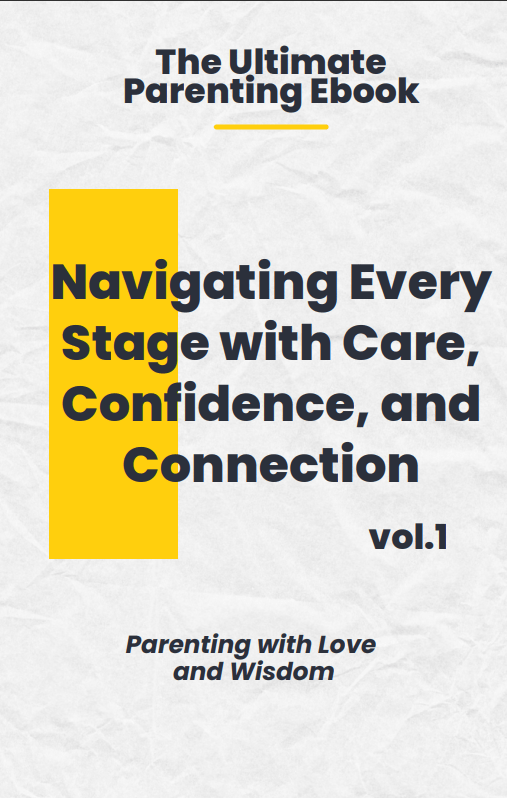
Parenting is one of life’s most profound journeys, but let’s face it—it’s not always easy to balance love, discipline, and emotional connection. If you’ve ever wondered why your child seems distant or hesitant to open up, it’s worth considering if you’ve unknowingly adopted habits of an avoidant parent.
This isn’t about assigning blame; it’s about self-awareness. We all carry patterns from our past or react to daily stress in ways that might not foster the connection we want with our kids. Let’s dive into what being an avoidant parent really means and explore 7 subtle habits that could be creating emotional distance.
In This Blog
ToggleWhat Is an Avoidant Parent?
At its core, an avoidant parent tends to shy away from emotional closeness. This isn’t deliberate; it often stems from how you were raised or your own unresolved struggles. Avoidant parents may avoid vulnerability, prioritize independence over connection, or feel uncomfortable when emotions run high.
Key characteristics of avoidant parenting include:
- Difficulty expressing affection openly.
- Redirecting emotional conversations to logic or problem-solving.
- A focus on tasks and routines over relational bonding.
7 Subtle Habits of an Avoidant Parent
Let’s uncover these habits together. You might find yourself nodding along to some of these, and that’s okay—it’s the first step toward change.

1. Avoiding Emotional Conversations
Do you find yourself dismissing your child’s feelings with phrases like “You’re fine,” or “It’s not a big deal”? While it might seem harmless, this habit teaches children to bottle up their emotions instead of sharing them.
How to fix it:
Practice active listening. When your child expresses frustration or sadness, repeat back what they’re saying to show you’re listening: “It sounds like you’re feeling upset about that.”
2. Preferring Logic Over Empathy
Avoidant parents often lean on logic during conflicts: “Why didn’t you just do X?” This approach might solve problems, but it can leave your child feeling unseen and unheard.
Why it matters:
Kids need to feel validated, even if their emotions seem irrational. Emotional safety builds trust.
3. Redirecting Emotional Expressions
Do you ever change the subject when conversations get too personal or vulnerable? This can send the message that emotions are unwelcome or inconvenient.
Tip:
Instead of redirecting, try saying, “Thank you for sharing this with me. How can I support you right now?”
4. Struggling to Express Affection
Many avoidant parents grew up in households where love wasn’t openly expressed, making hugs, kisses, and verbal affirmations feel awkward.
Break the cycle:
Start small. A heartfelt “I care about you”, “I love you “or a warm pat on the back can make a world of difference.
5. Being Task-Oriented
Do you focus more on checking off to-do lists than spending meaningful time together? Tasks like homework, chores, and extracurriculars are important, but they shouldn’t overshadow quality bonding.
Balance it out:
Set aside 15 minutes a day for undistracted one-on-one time. No agenda—just connection.
6. Showing Discomfort During Vulnerable Moments
Do you pull away or shut down when your child gets overly emotional? This reaction can make your child feel rejected or unsupported.
Mindset shift:
View these moments as opportunities to deepen your bond, even if it feels uncomfortable.
7. Using Distractions to Avoid Connection
It’s tempting to retreat to your phone or TV after a long day, but these distractions can create an emotional wall between you and your child.
Pro tip:
Model healthy boundaries with technology. Declare family dinners or bedtimes as no-phone zones.
Why These Habits Matter
You may not notice the effects of avoidant parenting right away, but over time, these subtle habits can shape how your child views relationships, trust, and emotional intimacy. Many children of avoidant parents develop an avoidant attachment style, which can make it challenging for them to build healthy connections as adults.
Here’s how this attachment parenting style can impact them as they grow:
Difficulty Trusting Others
They may struggle to trust people, believing they need to rely solely on themselves for emotional security.
Fear of Vulnerability
Avoidant individuals often feel uncomfortable sharing their emotions or showing vulnerability, fearing judgment or rejection.
Emotional Distance in Relationships
They may avoid deep emotional connections, leading to shallow or surface-level relationships.
Difficulty Expressing Emotions
Expressing feelings, even to close friends or partners, can feel unnatural or overwhelming.
Avoidance of Conflict
They might steer clear of resolving conflicts, preferring to withdraw or suppress their emotions instead.
Tendency to Overemphasize Independence
Being overly self-reliant, they may avoid asking for help or depending on others, even in situations where collaboration is beneficial.
Challenges in Intimacy
They may fear losing their autonomy in close relationships, creating a pattern of emotional or physical withdrawal.
Insecurity in Attachment
Relationships might feel unstable or risky, leading them to end connections prematurely or avoid relationships altogether.
Increased Risk of Loneliness
Their reluctance to form close bonds can lead to isolation, even when they deeply crave connection.
By addressing avoidant tendencies in parenting, you can help your child develop healthier emotional patterns and prepare them for fulfilling relationships in the future.
How to Break the Cycle
The good news? Awareness is the first step to change. If you’re noticing avoidant tendencies in your parenting, here are actionable ways to reconnect with your child:

1. Practice Emotional Validation
When your child shares their feelings, acknowledge them without judgment. Saying something like “I understand why that made you feel upset” can mean a lot.
2. Engage in Open-Ended Conversations
Try asking questions such as “How did that make you feel?” or “What do you think we can do about this?”
3. Model Vulnerability
Share your own feelings (age-appropriately) to show it’s okay to open up.
4. Seek Professional Support if Needed
Therapy or parenting workshops can offer valuable tools to strengthen your bond.
Expert Insights on Avoidant Parenting
Dr. Carla Sanders, a family psychologist, emphasizes:
“Avoidant parenting often arises from unresolved fears or stress. The key is not perfection but consistent effort to engage emotionally with your child.”
Conclusion
Parenting is a learning experience that helps both you and your child grow. If you see yourself in these patterns, remember, it’s never too late to make changes. Small, intentional efforts to connect can create a ripple effect of trust and emotional safety in your child’s life.
Start today. Be the parent who listens, hugs, and stays present—even when it’s hard.
Are you ready to break free from the habits of an avoidant parent and build a deeper connection with your child?
You may also be interested in : How Millennial Parenting Style is Shaping the Next Emotionally Intelligent Generation
FAQs
1. What is an avoidant parent?
An avoidant parent is someone who struggles with emotional closeness and may unintentionally create distance in their relationship with their child.
2. What are the traits of an avoidant parent?
Traits include difficulty expressing affection, avoiding emotional conversations, and focusing on tasks rather than connection.
3. How does avoidant parenting affect children?
It can lead to children developing an avoidant attachment style, causing challenges in trust, vulnerability, and emotional intimacy later in life.
4. Can an avoidant parent change their habits?
Yes, through self-awareness, active listening, and intentionally fostering emotional connections, avoidant parenting patterns can improve.
5. What are examples of avoidant parent behaviors?
Examples include dismissing feelings, avoiding conflict, using distractions like technology, and steering clear of deep emotional talks.
6. Why do some parents become avoidant?
Avoidant parenting often stems from unresolved childhood experiences, emotional trauma, or overwhelming stress.
7. How can I tell if I’m an avoidant parent?
Look for signs like discomfort with vulnerability, focusing more on tasks than connection, and avoiding emotional discussions.
8. What is the first step to overcoming avoidant parenting?
The first step is recognizing avoidant tendencies in your behavior and committing to change through small, consistent efforts.
9. How can I reconnect with my child as an avoidant parent?
Spend quality one-on-one time, practice validating their feelings, and be present during vulnerable moments.
10. How does avoidant parenting affect a child’s future relationships?
It can lead to difficulty trusting others, avoiding vulnerability, and struggling with emotional intimacy in relationships.
11. What’s the difference between avoidant parenting and being busy?
Being busy is situational, but avoidant parenting reflects consistent emotional disconnection, even when time is available.
12. Can children recover from avoidant parenting?
Yes, with supportive changes at home or therapy, children can develop healthier emotional patterns and stronger relationships.
13. What are emotional validation techniques for avoidant parents?
Techniques include actively listening, acknowledging your child’s feelings, and reframing your responses to encourage emotional sharing.
14. Why is affection important in parenting?
Affection builds emotional safety and trust, which are essential for healthy child development and strong parent-child bonds.
15. Can avoidant parenting lead to loneliness in children?
Yes, children of avoidant parents may feel emotionally isolated, which can lead to feelings of loneliness and detachment.
16. How can I balance tasks and emotional connection as a parent?
Set aside time each day for undistracted bonding, even if it’s just 15 minutes of play, conversation, or cuddling.
17. What is avoidant attachment style?
Avoidant attachment is a coping mechanism where individuals avoid emotional closeness due to fear of vulnerability or rejection.
18. How can technology impact avoidant parenting?
Over-reliance on phones or screens can increase emotional distance, making children feel less important than other distractions.
19. Can avoidant parenting be intergenerational?
Yes, unresolved avoidant patterns from childhood can pass down through parenting if not addressed and consciously changed.
20. What resources can help avoidant parents improve?
Books on attachment styles, family therapy, parenting workshops, and online support groups can help avoidant parents build stronger connections.




